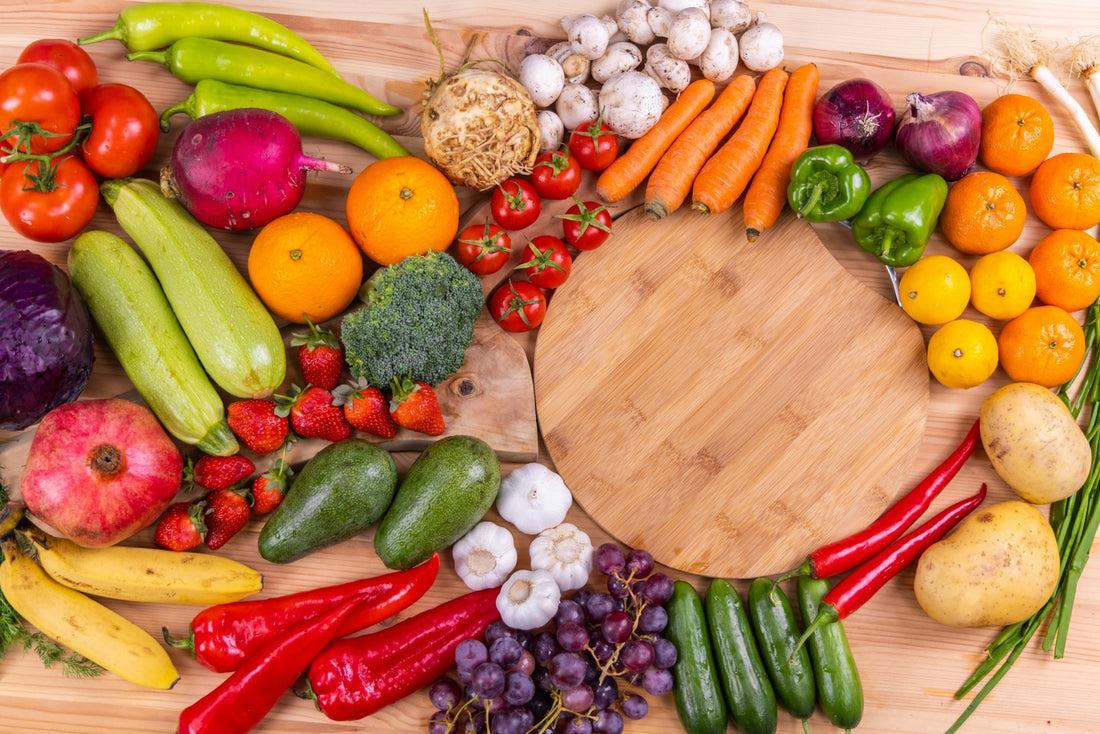
Can My Dog Eat: Winter Fruits & Veggies
As a dog parent, you might be tempted to share your favorite winter fruits and vegetables with your furry companion.
After all, many human foods can offer nutritional benefits to dogs, but it’s essential to know which ones are safe and which should be avoided.
Especially during the holidays, when celebrations revolve around seasonal delicacies, it’s crucial to understand what is safe to give your dog.
In this blog, we’ll explore popular winter fruits and vegetables and whether they can safely be included in your dog’s diet.
Can My Dog Eat Winter Vegetables?
Introducing vegetables into your dog’s diet is a great way to offer extra vitamins and minerals. High-fiber vegetables, in particular, can support digestive health and provide a low-calorie treat. However, not all winter vegetables are dog-friendly. Let’s break down some common winter veggies:
1. Cabbage:
Cabbage is a safe, nutritious addition to your dog’s diet—rich in vitamins and fiber. However, moderation is key. Too much cabbage can cause gas for your pup, leading to some smelly side effects! Start small, and always monitor your dog’s reaction.
2. Brussels Sprouts:
Brussels sprouts are loaded with nutrients like antioxidants, which benefit both dogs and humans. However, these greens can also cause gas if given in large quantities. Offering them as an occasional treat in small portions is the best way to avoid digestive upset.
3. Broccoli:
Broccoli is high in fiber and vitamin C, making it a great snack in moderation. However, broccoli contains isothiocyanates, which can cause stomach irritation in some dogs. Always serve it in small, well-cut pieces to prevent choking or gastrointestinal discomfort.
4. Kale:
While kale is a superfood for humans, it’s best to avoid feeding it to your dog. Kale is high in calcium oxalate, which can contribute to bladder or kidney stones. If you want to offer leafy greens, choose safer options like spinach or romaine lettuce.
Can My Dog Eat Winter Fruits?
Winter fruits can add a sweet, vitamin-rich complement to your dog’s diet. However, just like vegetables, not all fruits are safe for dogs. Here’s a look at some common winter fruits:
1. Pears:
Pears are an excellent source of vitamins C and K, along with fiber. Just be sure to remove the seeds and core, as pear seeds contain small amounts of cyanide. When served in bite-sized chunks, pears can be a tasty and nutritious snack for your dog.
2. Oranges:
Oranges are a good source of vitamin C, but not all dogs enjoy the strong citrus smell. If your dog shows interest, offer small pieces of the orange flesh (without seeds or peel) as a treat. Just be careful—too much citrus can cause digestive upset.
3. Grapefruit:
While grapefruit isn’t toxic to dogs, its bitter taste and high acidity make it less appealing. The fruit can also upset your dog’s stomach, so it’s best to offer only small amounts, if at all.
Important Tips for Sharing Winter Fruits and Vegetables with Your Dog
When introducing new foods into your dog’s diet, always follow these basic guidelines:
- Moderation: Even safe fruits and vegetables should be offered in small amounts. Too much can lead to digestive problems like diarrhea or gas.
- Remove Seeds and Pits: Seeds, pits, and cores from fruits like apples and pears can be dangerous for dogs. Always remove them before serving.
- Check for Allergies: If you’re trying a new fruit or vegetable, monitor your dog for signs of allergic reactions, such as itching, swelling, or stomach upset.
- Consult Your Vet: If you’re unsure whether a food is safe or beneficial for your dog, it’s always best to check with your veterinarian.
Conclusion: Stick to Dog-Friendly Foods
While many winter fruits and vegetables can be shared with your dog in moderation, it’s important to understand which are safe and how to serve them properly. Always consult with your vet if you’re unsure about introducing new foods, and remember that good-quality dog food should make up the majority of your pet’s diet. Winter treats are fun, but your dog’s overall health comes first!
References:
- ASPCA: Toxic and Non-Toxic Plants and Foods for Dogs
- American Kennel Club (AKC): Fruits and Vegetables Safe for Dogs
- PetMD: Winter Vegetables for Dogs: What’s Safe and What to Avoid
- Veterinary Medicine Journal: The Effects of Fruits and Vegetables on Canine Health